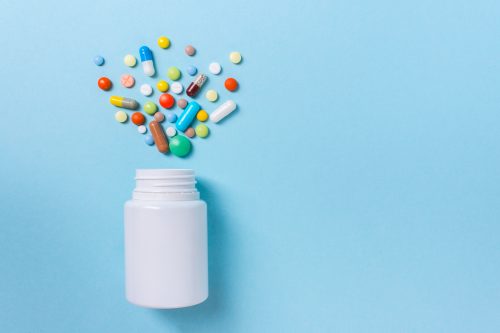Drug advertising: New rules on advertising for over-the-counter and non-prescription medicines (OTC and SOP)
 The Italian version of this article has been published on October 23, 2023 on AgendaDigitale.eu, within our “Legal Health” bi-monthly column.
The Italian version of this article has been published on October 23, 2023 on AgendaDigitale.eu, within our “Legal Health” bi-monthly column.
Thanks to Denise Moretti for collaborating on this article
Last July, the Italian Ministry of Health updated the guidelines on advertising for over-the-counter (OTC) and non-prescription medicines (SOP). Specifically, the new guidelines regulate the use of media—such as social media networks—to publish advertising messages regarding OTC and SOP.
The guidelines update and reorganize into a single regulatory system all the previous regulations, issued in 2010, 2017, and 2018, which have been expressly replaced, and this is clearly a good step in terms of streamlining and simplification of the applicable regulatory framework. The other main change is the introduction of TikTok as one of the regulated social media networks for hosting promotional messages.
Furthermore, the relevant forms to be used to file the request for authorization of promotional messages with the Ministry of Health have been updated and are available on the Ministry’s website.
Below you can find key highlights of the guidelines.
Minimum mandatory content of advertisements
The new guidelines specify that all advertisements must include specific wording, which in some cases differs for OTC and SOP. The wording shall indicate the active ingredients of the medicine, the type of medicine, and the effects of antihistamines and FANS (non-steroidal anti-inflammatory drugs), where appropriate. Specific rules for SOP are provided for auditory messages and point-of-sale advertisements. Indeed, the use of advertising media such as displays, shelf cards, and other forms of advertising that ostentatiously display medicine packaging is not permitted as it is against the regulations on SOP (while it is allowed for OTC).
Advertisements on Websites
Ministry of Health authorization is required for all promotional messages placed on websites, including corporate/institutional websites. Authorization is also required for product websites (those owned by companies promoting products for informational and promotional purposes).
Furthermore, authorization is required to advertise OTC/SOP on authorized ecommerce websites (while the mere offer of such products without promotional messages does not require authorization according to article 118 of the Code of Medicines), while posting health advertisements for OTC and SOP on large ecommerce channels (such as Amazon and eBay,) is not permitted as such channels are not authorized sites for medicine ecommerce.
In contrast, authorization is not required for individual corporate/institutional sites that promote their brands without promoting products (i.e., institutional advertising), nor is it required for corporate-owned thematic sites that deal with health-related topics (i.e., disease awareness communication).
The guidelines also regulate the use of clickable links in advertisements through websites.
Interestingly, the new guidelines specify that links to other types of content addressed to the public that require authorization but are not authorized are not allowed even if such content is in a foreign language.
Advertisements through Email, SMS, and MMS
Advertising messages disseminated by email, SMS, and MMS are allowed, provided that they are duly authorized and include the minimum contents required by the law (see above). Their transmission also requires the consent of the consumer from a data protection perspective, which is freely revocable.
Advertisements on social media networks
All promotional messages distributed through social media networks must be authorized. As already stated in the previous guidelines, promotional messages must adhere to the principle of staticity, which means that an authorized message must correspond to the message actually disseminated. Under this principle, the new guidelines also stipulate that an authorized message can be spread on a social media network only upon disabling all functions that allow users to interact with and potentially modify the promotional authorized message (e.g., comment functions, reactions, shares). The guidelines also regulate the types of links that can be introduced in promotional messages on social media networks and the specific disclaimers that must be included. This remains unchanged from the previous guidelines.
In addition, as noted above, the new guidelines add TikTok to the list of social media networks where promotional messages can be shared—previously consisting of Facebook, Instagram, and YouTube only. The guidelines also state that the dissemination of advertising messages through other currently unregulated social media networks is not permitted. LinkedIn remains a notable absence.
As for the rules for the newly added social media network TikTok, we would note the following: (i) corporate/institutional profiles and thematic corporate profiles on TikTok do not require authorization; (ii) any promotional content containing an advertisement related to OTC and SOP must be authorized; (iii) comment, duet, stitch, share, like, and emoticon functions must be disabled, and the receipt of advertising campaigns is tightly regulated.
Validity of Ministry of Health authorization
In general, authorization is valid for 24 months. The duration may be shorter, if the Ministry of Health determines that is appropriate based on the characteristics of the message disclosed, and it may be valid for only 12 months for advertisements that use wording that emphasizes the newness of a medicine. This is a new provision of these guidelines.
Extension of the authorization to advertising in other broadcast media
The new guidelines allow an advertising message authorization obtained for one form of broadcast media to be applied to another form of media using the same technical support at the request of the holder of the previous authorization. For such an extension, the advertising message publicized through other media must be identical to the one subject to the previous authorization, whose expiration date remains unchanged.
Cross-media scenarios
Finally, the guidelines introduce the possibility to include references to websites or social media network pages or profiles in authorized advertisements if their content has been authorized or does not require authorization. In the application for authorization, the applicant must indicate the profiles to which reference is made if the advertising message does not explicitly mention them.
